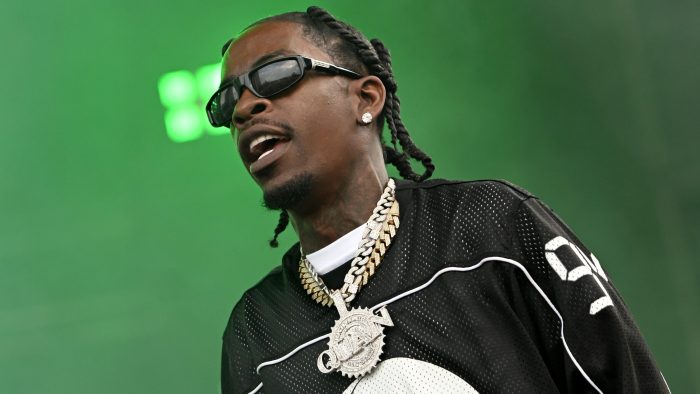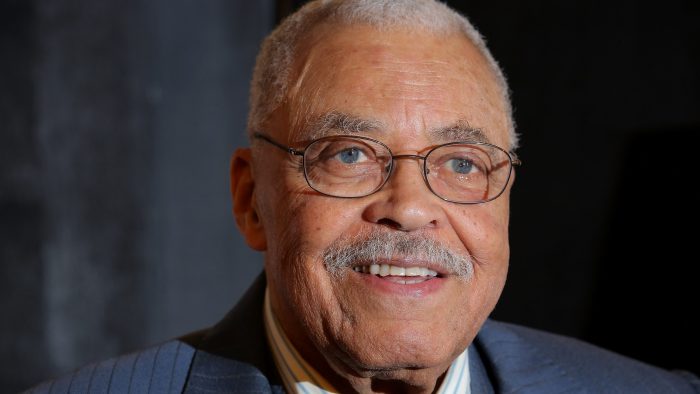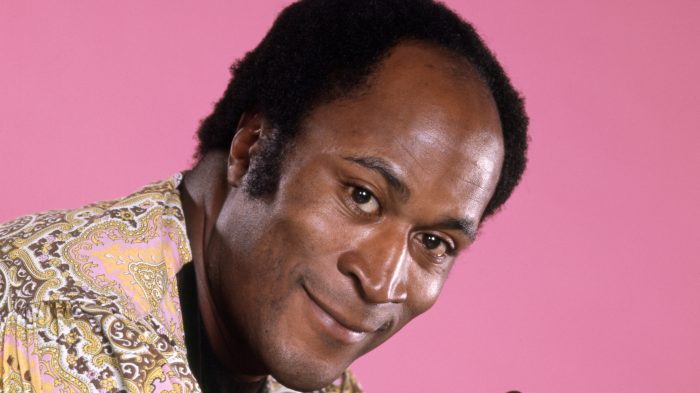2024 has been a heartbreaking year in which we have lost too many brilliant sparks within the culture. On Sept. 10, Tito Jackson delivered his final live performance onstage at the Circus Krone in Munich, Germany. The 70-year-old guitarist and vocalist was on tour as part of The Jacksons with his brothers Marlon and Jackie and son Taryll, and the usually reserved musician was having a heart-on-his-sleeve moment. “We are all the same people … so we need to love one another” the plainspoken founding member of the legendary Jackson 5 told fans, wearing his signature bowler hat and a black sequined jacket.
As he segued into his 2021 single “Love One Another,” which featured singer Stevie Wonder, Jackson’s gutbucket guitar riff reverberated throughout the 3,000-seat arena. It was a reminder that the third oldest member of the Jacksons — and American musical family that produced the Jackson Five; the King of Pop, Michael Jackson; and baby sister Janet Jackson — has always come across as the most “normal,” salt-of-the-earth sibling of the Gary, Indiana, natives. Jackson suffered a heart attack five days later on Sept. 15 and died while driving from New Mexico to Oklahoma.
“I was surprised how good, how fluid and graceful his touch was on the guitar” lead guitarist Gregg Wright, who toured with Michael Jackson, and the Jacksons on their 1984 Victory tour, recalled. “That guy was a blues player, period. It wasn’t him being influenced by the blues or him affecting blues playing. Tito was a bluesman. You could have taken him down to Louisiana or Mississippi and he would have been fine.”
Frankie Beverly gave the culture happy feelings right until the very endRead now
Jackson’s death was especially a gut punch following the death of actor James Earl Jones, the two-time Tony Award winner who died Sept. 9, and the death of the founder and front man of Maze Frankie Beverly, who died Sept. 10.
Influential rapper Rich Homie Quan, who died Sept. 5 at age 34 in a hospital in Atlanta of an accidental drug overdose, was one of the city’s brightest stars, and released such favorites as “Type of Way,” “Lifestyle” and “Flex (Ooh, Ooh, Ooh).”
Fatman Scoop, the popular New York radio DJ turned hype man on such hits as “Drop” by Magoo and Timbaland and “Lose Control,” by Missy Elliott and Ciara in 2005, collapsed and died during a performance Aug. 30 in Connecticut. He was 53. Other deaths hit the hip-hop world earlier this year, including Chino XL; former Kool G Rapp partner DJ Polo; Enchanting, 1017 rapper and protégé of Gucci Mane; and DJ Mister Cee.
The dance community was also devastated following the death on Sept. 10 of Michaela DePrince, the ballerina who performed with the Boston Ballet and in Beyoncé’s landmark 2016 Lemonade film. She was 29. Cat Glover, 60, the singer, dancer and choreographer who worked with Prince on his Sign o’ the Times and LoveSexy albums and related tours and videos in the late 1980s, died Sept. 24.
 On Rich Homie Quan’s death and Atlanta rap’s lost generationRead now
On Rich Homie Quan’s death and Atlanta rap’s lost generationRead now
And the death of actor John Amos was officially announced this week (his son Kelly Christopher Amos said that his father died Aug. 21 in Los Angeles). His standout roles included weathercaster Gordy Howard on The Mary Tyler Moore Show; Good Times’ iconic, strong willed dad James Evans Sr. on the classic 1970s sitcom; the older Kunta Kinte in the miniseries Roots, for which he was nominated for an Emmy Award in 1977; and as no-nonsense burger-chain owner Cleo McDowell in Coming to America.
All of these artists deserve their own spotlight of remembrance. Yet the deaths of Jones, Beverly and Jackson represent the end of an era of celebrity that was once larger-than-life yet still held a deep personal connection with fans. Today the state of toxic stan culture is a social media-fueled, pump-and-dump machine that awards the loudest, most shameless personalities. Jones, who effortlessly jumped from prestige drama (The Great White Hope); voicing Darth Vader, science fiction’s ultimate villain (the Star Wars franchise); Broadway (August Wilson’s award-winning play Fences); R-rated comedy (Coming to America); and Disney (The Lion King) is worlds apart from the current top-heavy, remake-obsessed Hollywood.
Black America’s favorite uncle Beverly and Maze thrived in a post-1960s era when the most record labels had “urban music” divisions. They released a string of gold records, creating such cookout favorites as “Happy Feelin’s,” “Southern Girl” and “Before I Let Go” yet they remained in obscurity among white pop and rock music fans and critics. Like the Grateful Dead, Maze was an anomaly: an age-defying touring band whose perpetual onstage legend at times eclipsed its studio output.
And Jackson was elevated by Black musical royalty. The Jackson 5 became the first group in history to score four consecutive No.1 hits on the Billboard Hot 100: “I Want You Back” (1969), followed by “ABC,” “The Love You Save” and “I’ll Be There” (1970), eventually selling up to 150 million records worldwide.
 James Earl Jones: The great Black heroRead now
James Earl Jones: The great Black heroRead now
Jackson later flexed his guitar prowess on gold and platinum releases: The Jacksons, released in 1976, Destiny (1978), and Triumph (1980) and session work on Betty Wright’s self-titled album in 1981. Yet it was at times challenging for the musician to be taken seriously. He became a punch line in comedian Eddie Murphy’s 1983 TV special Delirious.
Of course the Rock & Roll Hall of Famer would get the last laugh, finding solo success with his 2016 debut single, “Get It Baby,” which peaked at No. 20 on the Billboard adult R&B airplay chart.
The impact of Jackson, Jones, Beverly, and the others who left us in 2024 gives credence to the arts being more than just fodder for stans to score points on commercial and bag-securing supremacy. In a word … it’s timeless.
Keith “Murph” Murphy is a senior editor at VIBE Magazine and frequent contributor at Billboard, AOL, and CBS Local. The veteran journalist has appeared on CNN, FOX News and A&E Biography and is also the author of the men’s lifestyle book “Manifest XO.”



